Balancing Community Orchestra Rehearsals With Your Daily Life

Table Of Contents:
- Balancing Community Orchestra Rehearsals With Your Daily Life
- Crafting an Effective Schedule for Rehearsals and Work
- Identify Your Fixed Commitments for Work and Personal Time
- Allocate Specific Days and Times for Rehearsals
- Use Digital Planners for Better Visualisation and Reminders
- Build in Flexibility for Unexpected Events
- Maximising Productivity During Limited Rehearsal Time
- Set Clear Goals for Each Rehearsal Session
- Implement Focused Practice Strategies
- Use Recordings to Review Progress Outside of Rehearsals
- Encourage Sectionals for Challenging Pieces
- Strategies for Managing Fatigue and Stress
- Incorporate Relaxation Techniques Into Your Daily Routine
- Schedule Regular Breaks During Rehearsals
- Balance Physically Demanding Activities With Rest Periods
- Stay Hydrated and Maintain a Healthy Diet
- Leveraging Technology for Efficient Rehearsal Planning
- Utilize Online Scheduling Tools for Coordinating With Members
- Adopt Music Learning Apps for Personal Practice
- Share Digital Sheet Music for Easier Access and Learning
- Record Rehearsals for Remote Feedback and Review
- Building a Supportive Network Within the Orchestra
- Establish Open Communication Channels for Availability
- Foster a Culture of Mutual Aid for Learning Parts
- Organise Social Events to Strengthen Team Bonds
- Share Responsibilities for Organisational Tasks
- Adjusting Expectations and Setting Realistic Goals
- Recognise the Challenges of Balancing Multiple Commitments
- Set Achievable Objectives for Personal and Group Progress
- Celebrate Small Milestones to Maintain Motivation
- Be Flexible and Adapt to Changes in Schedules or Availability
- Conclusion
Balancing Community Orchestra Rehearsals With Your Daily Life
Balancing your commitment to community orchestra rehearsals with daily life can be a challenge, but it’s also incredibly rewarding. Whether you’re part of the Rusty Players Orchestra, the People’s Big Band, or any of our other ensembles, finding harmony between your musical passion and personal responsibilities is crucial. By joining our mailing list, you’ll stay informed about rehearsal schedules and receive tips on managing your time effectively. In this article, we’ll explore practical strategies to help you strike the right chord between your orchestra commitments and daily life. From creating efficient schedules to maximising productivity during rehearsals, you’ll discover how to make the most of your musical journey with us.
Crafting an Effective Schedule for Rehearsals and Work
Balancing your commitment to a community orchestra like the Rusty Players Orchestra with your daily responsibilities can be challenging, especially when you’re juggling work, personal life, and the demands of mastering a string instrument like the violin. As you prepare for upcoming performances with our ensembles, including festive Christmas concerts, it’s crucial to create a well-structured schedule that allows you to make the most of your rehearsal time without compromising your other obligations. By identifying your fixed commitments, allocating specific rehearsal slots, utilising digital planning tools, and maintaining flexibility, you can craft an effective schedule that harmonises your musical pursuits with your everyday life.
Identify Your Fixed Commitments for Work and Personal Time
Begin by mapping out your non-negotiable commitments, such as work hours, family obligations, and essential personal activities. Include work with us time, like your bus journey to and from work, and factor in regular tasks such as checking and responding to emails. This will help you identify potential slots for orchestra rehearsals with our ensembles and individual practice sessions for your viola. Remember to mark any upcoming concert dates with the Rusty Players Orchestra in your calendar to ensure you’re adequately prepared.
Allocate Specific Days and Times for Rehearsals
Set aside dedicated time slots for your orchestra rehearsals with the Rusty Players Orchestra, taking into account the information provided by the conductor regarding the symphony or concerto you’re preparing. Choose days that align with your work schedule and allow ample time for you to arrive at rehearsals without feeling rushed, especially if you play a larger instrument like the double bass. Consider scheduling additional practice sessions during quieter periods of your week to ensure you’re well-prepared for upcoming performances.
Use Digital Planners for Better Visualisation and Reminders
Take advantage of digital planning tools to visualise your orchestra commitments alongside our ensembles and personal schedules. Use calendar apps to set reminders for rehearsals, concerts, and individual practice sessions, ensuring you never miss a crucial music event from October through June. These digital planners can help you track your progress, manage your time effectively, and stay on top of your musical goals while balancing your daily responsibilities.
Build in Flexibility for Unexpected Events
While creating your schedule, leave room for unexpected events that may arise in your work or personal life. You might need to accommodate last-minute meetings, family emergencies, or additional rehearsals for challenging pieces in the Rusty Players Orchestra repertoire. By maintaining some flexibility in your timetable, you’ll be better equipped to handle unforeseen circumstances without compromising your musical commitments or professional responsibilities.
Now that you’ve crafted an effective schedule, it’s time to make every minute count. Let’s dive into how you can maximise productivity during your limited rehearsal time.
Maximising Productivity During Limited Rehearsal Time
When your time for community orchestra rehearsals is limited, it’s crucial to make every minute count. By setting clear goals, implementing focused practice strategies, utilising recordings for self-review, and organising sectionals for challenging pieces in our ensembles, you can maximise your productivity during rehearsals. These techniques will help you balance your musical commitments with your daily life, ensuring you’re well-prepared for performances without sacrificing your other responsibilities. Let’s explore how you can optimise your rehearsal time and make steady progress in your orchestral journey.
Set Clear Goals for Each Rehearsal Session
Before each rehearsal, establish specific objectives for what you want to achieve. Focus on particular sections of the music, technical challenges, or ensemble aspects that need improvement. By setting clear goals, you’ll maintain focus and make the most of your limited rehearsal time, ensuring steady progress towards your upcoming performances: our ensembles
- Identify challenging passages in the score
- Set tempo targets for specific sections
- Work on dynamic contrasts and phrasing
- Improve synchronisation with other sections
- Refine intonation and articulation
Implement Focused Practice Strategies
To make the most of your limited rehearsal time, employ focused practice strategies that target specific areas of improvement. Break down complex passages into smaller sections, practise them slowly, and gradually increase the tempo as you gain proficiency. Use a metronome to enhance your rhythmic accuracy and work on challenging intervals or articulations in isolation. These techniques will help you progress more efficiently during rehearsals with the People’s Big Band:
- Isolate difficult passages for targeted practice
- Use slow practice to build muscle memory
- Incorporate metronome work for rhythmic precision
- Focus on intonation exercises for improved pitch accuracy
- Practise challenging articulations separately
Use Recordings to Review Progress Outside of Rehearsals
Take advantage of recording technology to review your progress outside of rehearsals. Record yourself playing challenging passages or entire pieces, then listen back to identify areas for improvement. This self-assessment technique allows you to make the most of your limited rehearsal time by addressing specific issues before you join your fellow musicians.
Encourage Sectionals for Challenging Pieces
Organise sectional rehearsals for particularly challenging pieces to focus on specific instrumental groups. These smaller group sessions allow you to address technical difficulties, work on intricate passages, and fine-tune ensemble playing within your section. By dedicating time to sectionals, you’ll improve your overall performance and make the most of your limited rehearsal time with the full orchestra.
Efficient rehearsals set the stage, but performers face another challenge: managing their energy and wellbeing. Let’s explore how to keep your mind and body in top form, ensuring you shine on stage despite the demands of rehearsals and performances.
Strategies for Managing Fatigue and Stress

Juggling orchestra rehearsals with your daily life can be physically and mentally demanding. To maintain your health and well-being whilst pursuing your musical passion, it’s essential to implement strategies that combat fatigue and stress. By incorporating relaxation techniques, scheduling regular breaks, balancing demanding activities with rest, and maintaining proper nutrition, you can ensure that your involvement in the community orchestra remains a fulfilling and enjoyable experience. These strategies will help you manage the challenges of a busy schedule, allowing you to perform at your best both in rehearsals and in your daily life.
Incorporate Relaxation Techniques Into Your Daily Routine
Integrate relaxation techniques into your daily routine to manage the stress and fatigue that come with balancing orchestra rehearsals and everyday responsibilities. Try deep breathing exercises, progressive muscle relaxation, or meditation to help you unwind and recharge. These practices can be particularly beneficial before or after rehearsals, helping you transition smoothly between your musical pursuits and other aspects of your life:
- Practice deep breathing exercises during your commute
- Use a meditation app for guided relaxation before bed
- Try progressive muscle relaxation during lunch breaks
- Incorporate gentle stretching routines after rehearsals
- Listen to calming music or nature sounds while winding down
Schedule Regular Breaks During Rehearsals
During lengthy rehearsals, it’s crucial to schedule regular breaks to prevent fatigue and maintain focus. Work with your conductor to incorporate short pauses every 45-60 minutes, allowing you to rest, stretch, and rehydrate. These breaks will help you stay alert and engaged throughout the rehearsal, ensuring you can give your best performance. Use this time wisely to refresh your mind and body:
- Stand up and stretch your muscles
- Hydrate with water or herbal tea
- Take a brief walk to improve circulation
- Practice deep breathing exercises
- Briefly socialise with fellow musicians
Balance Physically Demanding Activities With Rest Periods
Structure your schedule to balance physically demanding activities, such as orchestra rehearsals or instrument practice, with adequate rest periods. Allow yourself time to recover between intense musical sessions and other physically taxing tasks in your daily life. This balance will help prevent burnout, reduce the risk of repetitive strain injuries, and ensure you maintain the energy and focus needed for both your musical pursuits and everyday responsibilities.
Stay Hydrated and Maintain a Healthy Diet
Proper nutrition and hydration play a crucial role in managing fatigue and stress while balancing orchestra rehearsals with your daily life. Drink plenty of water throughout the day, especially before and during rehearsals, to maintain focus and prevent dehydration-induced fatigue. Fuel your body with a balanced diet rich in whole grains, lean proteins, fruits, and vegetables to provide the sustained energy you need for both your musical pursuits and everyday responsibilities.
Managing fatigue and stress paves the way for more productive rehearsals. Let’s explore how technology can revolutionise your planning process and make your musical journey even smoother.
Leveraging Technology for Efficient Rehearsal Planning
In today’s digital age, technology offers powerful tools to streamline your community orchestra rehearsal planning and enhance your personal practice. By leveraging online scheduling platforms, music learning apps, digital sheet music, and recording capabilities, you can optimise your time management and musical development. These technological solutions not only facilitate better coordination among orchestra members but also provide flexible learning options that fit seamlessly into your busy schedule. Embracing these digital resources allows you to make the most of your limited rehearsal time and maintain steady progress in your musical journey, all while balancing your daily responsibilities.
Utilize Online Scheduling Tools for Coordinating With Members
Take advantage of online scheduling tools to streamline coordination among orchestra members. Platforms like Doodle or When2Meet allow you to create polls for rehearsal times, ensuring everyone can contribute to finding the most suitable slots. These tools can help you efficiently manage rehearsal schedules, coordinate sectionals, and plan performances, saving time and reducing communication hassles:
| Online Scheduling Tool | Key Features | Benefits for Orchestra Coordination |
|---|---|---|
| Doodle | Poll creation, calendar integration | Easy rehearsal time selection, syncs with personal schedules |
| When2Meet | Visual availability grid, anonymous voting | Quick overview of group availability, facilitates democratic decision-making |
| Google Calendar | Shared calendars, event reminders | Centralised rehearsal schedule, automated notifications |
Adopt Music Learning Apps for Personal Practice
Incorporate music learning apps into your personal practice routine to enhance your skills and make the most of your limited time. Apps like Yousician, Simply Piano, or Tonara offer interactive lessons, real-time feedback, and progress tracking, allowing you to practise effectively even when you’re away from your instrument. These digital tools can help you focus on specific areas of improvement, such as rhythm, sight-reading, or ear training, complementing your orchestra rehearsals and accelerating your musical development.
Share Digital Sheet Music for Easier Access and Learning
Embrace digital sheet music platforms to streamline access and enhance your learning process. Services like Scribd, IMSLP, or MuseScore offer vast libraries of digital scores, allowing you to access your orchestra‘s repertoire from any device. This digital approach not only reduces the need for bulky sheet music but also enables you to make annotations, highlight challenging passages, and easily share markings with fellow musicians.
Record Rehearsals for Remote Feedback and Review
Harness the power of recording technology to capture your orchestra rehearsals for remote feedback and review. Use a high-quality digital recorder or smartphone app to document your sessions, allowing you to analyse your performance, identify areas for improvement, and share recordings with fellow musicians or your conductor for constructive feedback. This approach enables you to make the most of your limited rehearsal time by addressing specific issues beforehand and tracking your progress over time:
| Recording Method | Advantages | Considerations |
|---|---|---|
| Digital Recorder | High audio quality, dedicated device | Additional equipment to carry, may require setup time |
| Smartphone App | Convenient, easily shareable | Variable audio quality, depends on phone model |
| Video Recording | Captures visual cues, useful for posture analysis | Requires more storage space, may need tripod setup |
Technology streamlines rehearsals, but the heart of any orchestra lies in its people. Let’s explore how to foster a supportive network that harmonises both on and off the stage.
Building a Supportive Network Within the Orchestra
Building a supportive network within your community orchestra is essential for balancing rehearsals with your daily life. By fostering strong relationships with fellow musicians, you create a collaborative environment that enhances your musical experience and helps manage the challenges of a busy schedule. Establishing open communication channels, cultivating a culture of mutual aid, organising social events, and sharing organisational responsibilities are key strategies for developing this support system. These approaches not only improve the orchestra‘s overall performance but also create a sense of camaraderie that makes juggling your musical commitments with daily life more manageable and enjoyable.
Establish Open Communication Channels for Availability
Set up clear communication channels within your orchestra to share availability and scheduling information. Consider creating a dedicated WhatsApp group or using a shared online calendar where members can easily update their availability for rehearsals and performances. This open communication will help you coordinate effectively with your fellow musicians, ensuring everyone stays informed about rehearsal times and any changes to the schedule.
Foster a Culture of Mutual Aid for Learning Parts
Encourage a supportive atmosphere within your orchestra by fostering a culture of mutual aid for learning parts. Organise study groups or pair up with fellow musicians to tackle challenging sections together. This collaborative approach not only helps you master difficult passages more efficiently but also strengthens the bonds between orchestra members. Consider creating a mentorship programme where more experienced players can offer guidance to newer members, ensuring everyone feels supported in their musical journey:
- Form small study groups for each instrument section
- Pair up with a ‘practice buddy’ for accountability
- Establish a mentorship programme for new members
- Share practice tips and techniques during breaks
- Create a resource library of helpful learning materials
Organise Social Events to Strengthen Team Bonds
Plan regular social events to strengthen bonds between orchestra members and create a more cohesive team. Organise post-rehearsal gatherings at local cafes, arrange group outings to concerts, or host potluck dinners where everyone can socialise in a relaxed setting. These informal interactions will help you build stronger relationships with your fellow musicians, making it easier to collaborate during rehearsals and performances.
Share Responsibilities for Organisational Tasks
Distribute organisational tasks among orchestra members to lighten the load for everyone and foster a sense of shared responsibility. Assign roles such as music librarian, equipment manager, or social media coordinator, rotating these duties periodically to ensure fair participation. By sharing these responsibilities, you’ll not only reduce the burden on any single individual but also create a more engaged and invested group of musicians.
With a strong support network in place, you’re ready to tackle the next challenge. Let’s explore how to align your musical aspirations with achievable targets.
Adjusting Expectations and Setting Realistic Goals
As you navigate the demands of participating in a community orchestra alongside your daily responsibilities, it’s crucial to maintain a realistic perspective on what you can achieve. Balancing multiple commitments requires a thoughtful approach to goal-setting and a willingness to adapt your expectations. By recognising the challenges you face, establishing achievable objectives, celebrating your progress, and remaining flexible, you can create a sustainable and rewarding musical journey. This balanced approach will help you maintain your enthusiasm for the orchestra while managing your other life commitments effectively.
Recognise the Challenges of Balancing Multiple Commitments
Acknowledge the complexities of juggling orchestra commitments with work, family, and personal responsibilities. Understand that your time and energy are limited resources, and you may face challenges in meeting all your obligations. By recognising these constraints, you can approach your musical pursuits with a more realistic mindset, reducing stress and preventing burnout as you balance your various commitments.
Set Achievable Objectives for Personal and Group Progress
Establish realistic objectives for both your personal musical growth and the orchestra‘s collective development. Break down larger goals into smaller, manageable milestones that you can achieve within your limited rehearsal time. Focus on steady improvement rather than perfection, setting targets that challenge you without overwhelming your schedule. This approach will help you maintain motivation and track your progress effectively, ensuring you continue to grow as a musician while balancing your other responsibilities.
Celebrate Small Milestones to Maintain Motivation
Acknowledge and celebrate your small achievements to maintain motivation throughout your musical journey. Recognise improvements in your playing, successful performances, or even consistent attendance at rehearsals. These small victories will boost your morale, reinforce your commitment to the orchestra, and help you stay focused on your long-term goals despite the challenges of balancing multiple responsibilities.
Be Flexible and Adapt to Changes in Schedules or Availability
Remain adaptable when facing changes in your orchestra‘s schedule or your personal availability. Unexpected work commitments, family obligations, or other life events may occasionally conflict with rehearsals or performances. Cultivate a flexible mindset that allows you to adjust your plans and prioritise effectively when such situations arise. This adaptability will help you maintain your commitment to the orchestra while managing your other responsibilities:
- Communicate promptly with your conductor about any scheduling conflicts
- Offer to attend extra rehearsals to make up for missed sessions
- Use technology to stay connected with rehearsals when you can’t attend in person
- Be willing to swap parts or roles if necessary to accommodate changes
- Support fellow musicians who may need to adjust their commitments temporarily
Conclusion
Balancing community orchestra rehearsals with your daily life demands careful planning and realistic goal-setting. By crafting an effective schedule, maximising productivity during limited rehearsal time, and leveraging technology, you can harmonise your musical pursuits with work and personal commitments. Building a supportive network within the orchestra and implementing strategies to manage fatigue and stress will enhance your overall experience and performance. Ultimately, recognising the challenges, celebrating small milestones, and maintaining flexibility will help you create a sustainable and rewarding musical journey that enriches your life without compromising your other responsibilities.






